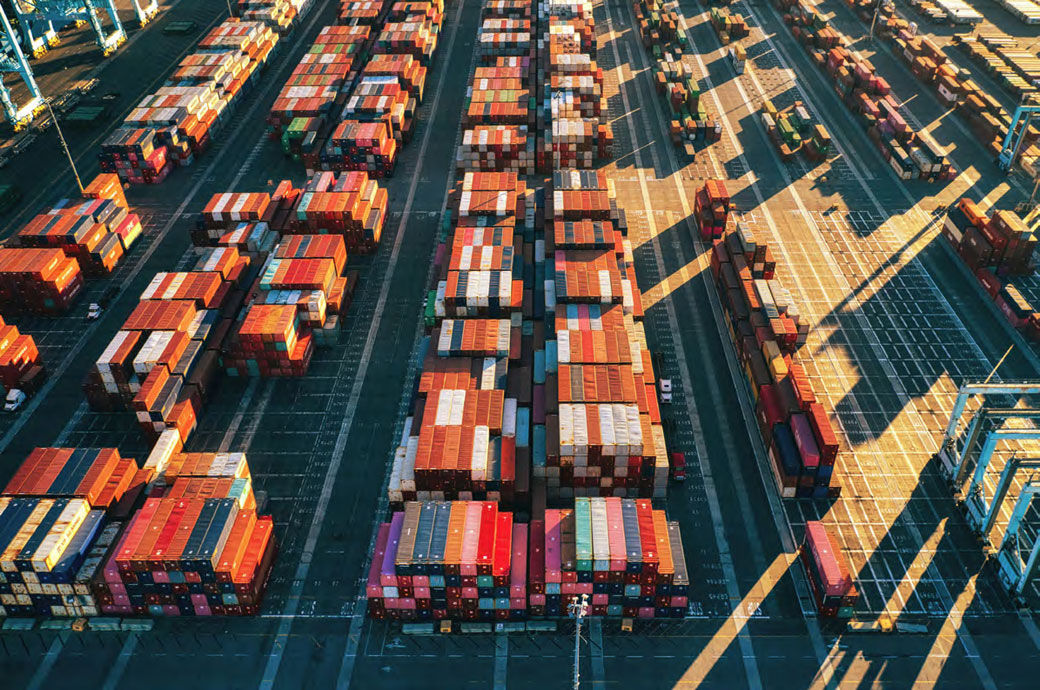
The figure was 70 per cent in the 2023 survey.
Exporters this year are also more concerned with geopolitical risks, shortages of inputs and labour, and financing and non-payment risks.
While last year, 70 per cent of corporates expected turnover growth and the year ended up with a trade recession, this year nearly 40 per cent expect a significant increase of more than 5 per cent in 2024 (twice as much as last year) and 80 per cent of respondents expect export prices to continue to rise this year.
The overall forecasts in the survey are quite conservative: global trade is expected to increase by 2.8 per cent in value terms, below the long-term average of 5 per cent, reflecting the risk of disruptions in global shipping like the Red Sea crisis, as well as the many trade wars looming on the horizon.
This year, risks related to politics and protectionism come up as the top risk by companies in the survey overall (at 73 per cent).
Furthermore, exporters still seem concerned with the shadow of supply chain disruptions—31 per cent of respondents ranked transport risks among their top three risks and 28 per cent included the risk of input shortages.
Financing (20 per cent) and non-payment risks (17 per cent) also feature high among this year’s top risks. Nearly 55 per cent of companies already have to wait more than 50 days to get paid and nearly 40 per cent of exporters expect non-payment risk to rise in 2024, broadly stable compared to last year.
Concerns related to transport risk and high energy prices have significantly declined from 2023, except for German exporters.
One in two companies is considering relocating supply chains due to increasing geopolitical concerns.
The political landscape, with elections taking place in economies that account for close to 60 per cent of global GDP, is contributing to rising geopolitical risks and increasing uncertainties. In this context, companies are in wait-and-see mode, mostly focused on upcoming national elections rather than the global political landscape, including the US elections in November.
Only 27 per cent of companies in the survey said that the US elections could pose a risk to their supply chains in the coming year or two.
Moreover, 53 per cent of respondents said they are considering relocating parts of their supply chain due to increasing geopolitical risks but fewer are actually taking concrete steps in this direction: relocating production sites does not rank among the top three out of 10 actions proposed to mitigate supply-chain disruption (except for Spanish and German exporters).
Interestingly, even fewer US companies (40 per cent) consider relocating parts of their supply chain due to increasing geopolitical risks, with sovereignty concerns and subsidies likely to be bigger motivations.
There is no evidence of a full decoupling from China yet. More than one-third of respondents plan to increase their footprint in China, while only 11 per cent plan to decrease it.
On the other hand, Chinese companies considering relocating sites or change suppliers mostly favour staying within the same region.
However, there are signs of diversification: Around a quarter of German, French and US firms see their footprint in China representing a smaller share of their global supply-chain investments going forward, preferring Asia-Pacific (especially ASEAN countries) and Western Europe.
Forty-eight per cent of US exporters that have production sites or suppliers in China would consider countries in Asia-Pacific or Latin America to diversify their supply chains.
Relocating within the same region and nearshoring seem to be the preferred trends. Only 5 per cent of respondents expect reshoring trends to reverse in the coming two years, while more than 26 per cent expect it to accelerate.
Companies are preparing to tap the potential of artificial intelligence (AI) to transform trade, but progress on greening trade is painfully slow.
Companies in Poland and China are heavily banking on AI: 79 per cent of Polish exporters and 81 per cent of Chinese ones mentioned an AI application as the most impactful digital tool on their international development, compared to about 60 per cent in other countries.
Yet, despite strong sustainability concerns and the crucial role of global trade in accelerating the green transition, there is still a long way to go: Nearly two out of three of respondents indicated that their companies would reduce carbon dioxide emissions by only a meagre 1-5 per cent in 2024, which will not be enough to reach net-zero emissions by 2050.
Fibre2Fashion News Desk (DS)